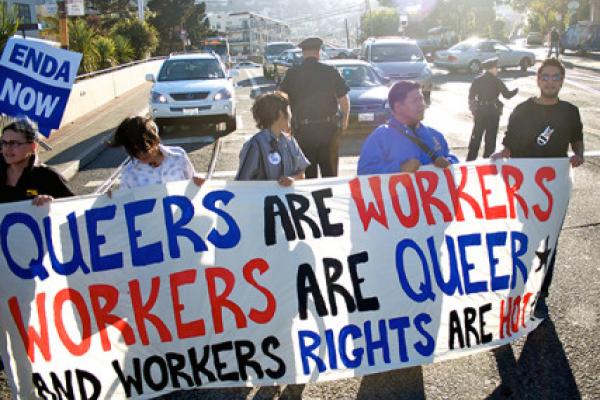What’s the next religious liberties faceoff? Some suggest it could be between LGBT workers and religious owners of private businesses.
On Monday, while news media dissected the Supreme Court’s Hobby Lobby ruling, President Obama pledged to sign an order protecting federal employees from discrimination based on gender identity .
But he has yet to sign an executive order version of the Employment Non-Discrimination Act, which would ban discrimination based on gender identity for all federal contractors and subcontractors, an order that affects for-profit businesses.
Now, in the wake of the Hobby Lobby ruling, such an order could rile the waters again, several legal experts say. They see a line between a ruling about contraception and hiring, firing, and benefit concerns for lesbian, gay, bisexual, and transgender employees.
Read the Full Article

